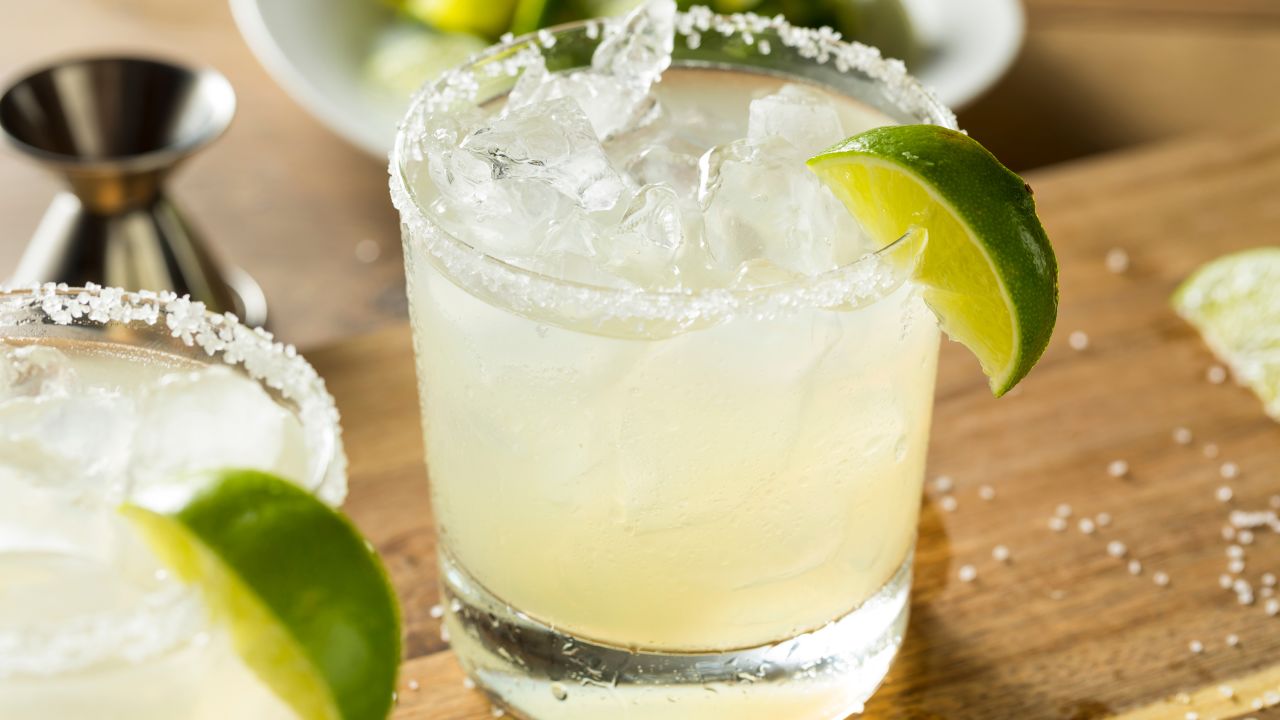The climate crisis threatens tequila production 0:51
(CNN) --
Something to keep in mind when looking for happy hour to celebrate National Margarita Day: The main ingredient in this delicious concoction is threatened by climate change and new pressures on the bat, a vital pollinator of the agave plant.
Agave liqueurs, such as tequila and mezcal, were the fastest-growing spirits category in 2022, according to the United States Distilled Spirits Council.
Analysts even say it could soon overtake vodka as the country's best-selling spirit.
But scientists around the world have made it clear that water scarcity caused by climate change will continue to put enormous pressure on food production.
Wine and spirits, unfortunately, do not escape this prognosis.
According to a 2019 study, the climate crisis, coupled with overgrazing caused by cattle ranching and other human activities, may alter the distribution and cultivation of agave, the main ingredient in tequila.
The agave is drought tolerant, but not necessarily resistant to the sudden weather changes that the climate crisis has intensified.
(Credit: Adobe Stock)
While the agave is a drought-tolerant plant that can thrive in hot climates with little to no water, Omanjana Goswami, a food and environmental scientist with the Union of Conscious Scientists, said the agave life cycle is too fragile to withstand the great weather change that the climate crisis is generating: from extreme drought to deadly storms like the one California just experienced.
"Agave is a desert plant, so of course anything that moves into that desert climate is going to help this crop thrive," Goswami told CNN.
"But unfortunately the effects of climate are not linear. It doesn't mean that as temperatures warm up that's going to continue to be the case."
advertising
"With extreme weather coupled with uncertainty, it's very difficult to predict where this is going to go in the future," he added.
The animals that pollinate the agave
Agave plants on the outskirts of the municipality of Tequila, in the state of Jalisco, Mexico, in 2019. (Credit: Ulises Ruiz/AFP/Getty Images)
In addition to the fact that agave plants are sensitive to sudden climatic changes, pollinators are also highly threatened by the weather.
Bees, butterflies and bats pollinate approximately 30% of the food that ends up on our tables.
Bats, like birds, are also considered important seed dispersers.
But as temperatures warm, the weather becomes more extreme and the seasons change, these pollinators are at risk of serious disruption.
Florida and several Chinese provinces are the regions of the world most vulnerable to climate change
Warming temperatures have become a growing concern for the Mexican long-snouted bat, a keystone species for tequila.
"We wouldn't have tequila if we didn't have bats, because they're the only thing that pollinates the agave plant that tequila is made from," Ron Magill, Zoo Miami's director of communications and wildlife expert, told CNN.
There are hundreds of species of agave, but only one - the Blue Weber agave - produces tequila.
Other agave species were abandoned in Mexico and in the desert regions of the southwestern United States.
By law, to be considered authentic "tequila," the aguardiente must come from the Tequila region of Mexico.
Otherwise, agave drinks produced in places like California can only be labeled as agave liqueur.
Workers walk through the blue Weber agave fields in Jonacatepec, Morelos state, Mexico, in 2021. (Credit: Luis Antonio Rojas/Bloomberg/Getty Images)
Due to the high demand for agave liquor, it is easy for farmers to fall into the practice of monoculture, in which they reuse the same soil to grow a single plant, causing a loss of genetic diversity, scientists told CNN. .
This includes places like California, where farmers don't rely on external pollinators like bats to grow their agaves.
But some researchers like Ron Runnebaum, an assistant professor of viticulture and enology at the University of California, Davis, are looking to explore more of that genetic diversity to see which variants other than the blue agave can adapt and survive in a changing climate to prevent loss of diversity.
"For us in the United States, and especially in California, there are a lot of questions around how to be able to grow this economically as a way to diversify farmers' portfolios as they face water scarcity as well as these other extreme events, whether it's prolonged drought or an abundance of water in a short period," Runnebaum told CNN.
economic opportunities
Agave-based spirits like tequila and mezcal were the fastest-growing spirits category in 2022, according to the United States Distilled Spirits Council.
(Credit: Adobe Stock)
Eight years ago, Reynolds began growing agave in northern California as an experiment to see if it would be a viable crop in response to water scarcity.
"They have paid a lot of attention to us, because the biggest problem (for farmers) is water," he told CNN.
The "severe groundwater cuts and concessions in state and federal water project deliveries, and the layoff of hundreds of thousands of acres in California and the projected long-term layoff of farmland" are causing growing interest, he said. she.
Climate change has California between extreme droughts and floods
With the help of the University of California at Davis, more resources are being devoted to researching the viability of low-water crops, especially in a rapidly changing climate.
Reynolds says industries need to start adapting and thinking about ways to survive in a hotter, drier future.
"There are going to be some flops and hiccups here and there," Reynolds said.
"I don't expect the climate to change. I'm just realistic in the sense that we have to do everything we can to curb climate change, but we also have to simultaneously have adaptation strategies to the climate change that is taking place, and agave is only part of the adaptation strategy".
agaveClimate changeInstaNewsMargaritaTequila






